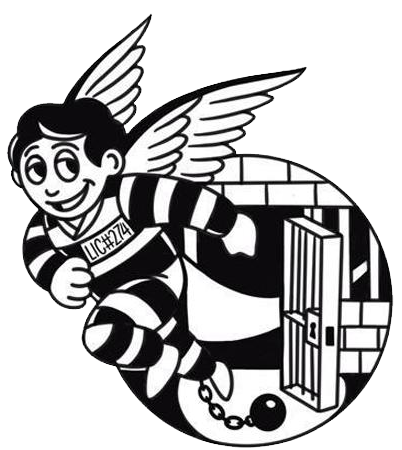For families who have never dealt with the legal system before, an arrest on a weapon-related crime frequently causes uncertainty, anxiety, and a sense of urgency. Weapon charges can range from simple possession to major offenses that entail harsh punishments, such as jail time.
Bring Em Home 24/7 Bail Bonds has assisted numerous families during these trying times. Although every case is different, one of the most often queries we receive is, “How do bail bonds work when someone is arrested for a gun or weapon charge?”
This blog will explain how the bail bond process works in these situations, from arrest to release, so that you and your loved ones can make informed decisions with confidence. We’ll break down the legal aspects, what to expect, and how we can help when bail is involved.
Understanding Weapon Charges: What They Typically Involve
The definition of a weapon charge must be understood before talking about the bail process. Although these charges differ based on state and municipal regulations, they usually entail the illegal distribution, use, or possession of firearms or other hazardous weapons. A criminal charge can be brought against someone in most jurisdictions for even carrying a concealed firearm without the required permit.
Unlawful firearm possession, a convicted felon’s possession of a firearm, and the use of a firearm while committing another crime are some of the most serious types of weapon charges. Switchblades, sawed-off shotguns, and modified firearms are a few examples of weapons that can be categorically prohibited.
Whether a weapon charge is classified as a misdemeanor or felony has a significant impact on the legal process, particularly when it comes to bail. Generally, the more severe the charge, the higher the bail amount and the more conditions a judge may impose for pretrial release.

The Arrest and Booking Process
When someone is arrested on a weapon charge, they are taken into custody and brought to the local jail for booking. This process typically includes:
- Fingerprinting and photographing (mugshot)
- Recording of personal information and the criminal charge
- A search for outstanding warrants
- Confiscation of personal belongings
Depending on the location, the defendant may need to wait for a bail hearing or magistrate review, especially if the weapon charge is a felony or tied to another serious offense.
What Is Bail?
Bail is a monetary assurance that a defendant will show up for all of their scheduled court dates. Judges consider a number of important considerations when determining the appropriate bond amount for weapon offenses. The severity of the charge, the defendant’s past criminal history, the possibility of their escape, and whether the accused offense entailed the use of a weapon in violent conduct are some of these.
Bail may be set lower if the charge is modest, the defendant has a clean background, and the defendant has strong community links. Bail, however, can vary from several thousand to tens of thousands of dollars for more serious weapon crimes, such as assault or possession by a felon. In cases where the weapon was used in a violent felony or poses a significant threat to public safety, the judge may deny bail altogether, prioritizing community protection over pretrial release.
What Are Bail Bonds and How Do They Work?
Not everyone has the funds to cover the entire bail amount. We can help with that.
We provide a bail bond, a financial service that enables a defendant to be freed from detention by paying only a portion of the total bail sum (often 10% in many jurisdictions) when they are unable to pay the full amount. With a promise to the court that the defendant will appear for all scheduled appearances, we pay the remaining bond sum.
After the case, the bond is released if the defendant shows up as needed. The bond might be forfeited, and we would be liable for the entire amount if they don’t show up.
Special Considerations for Weapon Charges
The potential threat to public safety makes weapon charges a high-risk offense in the eyes of judges and prosecutors. Consequently, these cases are usually subject to more examination, which can have a direct effect on the defendant’s eligibility for bail, the bond amount, and the particular terms governing their release. When granted bail in a case involving a firearm, it frequently has stringent conditions set by the court.
Curfews, mandatory check-ins with law police or pretrial services, GPS ankle monitoring, and a total ban on owning firearms or other weapons are typical requirements.These restrictions are designed to minimize risk while the individual awaits trial. We take these conditions seriously and work closely with each defendant and their family to ensure they fully understand and comply with every rule the court has imposed.
Felony vs. Misdemeanor Weapon Charges: Bail Differences
Depending on the specific circumstances, some weapon offenses are misdemeanors rather than felonies. The difference between a misdemeanor and a felony, however, has a big impact on how the court sets bail and terms of release. Generally speaking, misdemeanor weapon charges cover less serious violations, such as possessing a non-firearm weapon like brass knuckles or carrying a concealed weapon without a permit. The court procedure is frequently simpler in these situations, and the bond amount is typically smaller.
When a defendant is charged with a minor weapon, they are frequently released on personal recognizance (PR) or given a low monetary bond, particularly if they have no past criminal history without the help of bail bonds in Collin County, TX.
On the other side, the court system takes felony weapon charges far more seriously. These include crimes like having a firearm in the hands of a convicted felon, using a firearm to commit a violent crime, or having an unregistered or illegal handgun. These offenses frequently carry much larger bail amounts because they are viewed as posing a greater risk to public safety.
A formal bail hearing is frequently required by the judge, during which the defense must explain why the accused should be released on bond and what requirements should be placed on them to guarantee that they follow the law while they await trial. Release decisions are considered more carefully and closely because felony weapon charges carry a substantial risk.
Can a Weapon Charge Make You Ineligible for Bail?
Yes, there are situations in which bail may be refused, particularly for serious weapon offenses. There are significant exceptions to the basic right to reasonable bail guaranteed by the U.S. Constitution. If a violent offense, such as armed robbery or assault with a dangerous weapon, is involved in the weapon accusation, judges may completely refuse bail. In addition, if the defendant has been convicted of a violent crime before, is deemed to be a serious flight risk, or the weapon in question is thought to be linked to organized crime or gang activity, bail may be refused.
In these high-risk circumstances, courts give public safety precedence over pretrial release. But a refusal of bail isn’t always definitive. When this occurs, we work closely with families to help them explore legal options, including appeals or bail reconsideration hearings. Our role is to provide support and guidance, even when weapon charges make the path to release more complicated.

What You’ll Need to Secure a Bail Bond
If your loved one is in jail on a weapon charge and bail has been set, here’s what you’ll typically need to move forward with a bond:
- The full name and booking number of the defendant
- The location of the jail
- The amount of bail set by the court
- A form of payment for the bail bond fee (typically 10%)
- Collateral (if required) to back the bond, such as a vehicle title or property deed
As a trustworthy bail bond service in Lavon, TX, we evaluate the risk associated with each case, especially for felony weapon charges. We may ask for a co-signer or additional security to proceed.
The Role of a Co-Signer
A co-signer is essential to the bail procedure, particularly when weapon charges are involved, because the risks and obligations are much greater. A co-signer assumes financial responsibility if the offender does not show up for court. This is not an easy decision to make. Before moving forward with the bond, we prioritize making sure each co-signer is completely aware of their rights and responsibilities. This entails being aware of what to do if the defendant fails to appear in court, how to express any worries to us, and what choices they have if they believe the defendant will not follow the terms of the court.
These obligations are much more severe in the case of weapon allegations because the court system is paying closer attention. We provide co-signers with the guidance and support they need during what is often an emotional and uncertain time within our bail bond services in Wylie, TX, helping them navigate the process with confidence and clarity.
After Bail: Staying Out of Trouble While Awaiting Trial
Getting released on bail is just the beginning. Weapon charges often come with strict release conditions, and breaking even one of them can result in being re-arrested and losing the bail bond.
Here’s what we advise every client and family to keep in mind after a bond is posted:
- Avoid contact with firearms or weapons of any kind
- Stay away from co-defendants or known felons
- Follow all curfews and geographic restrictions
- Attend every court date, no exceptions
- Report any address or employment changes immediately
We check in with our clients regularly and offer reminders about court dates. We know that compliance isn’t always easy, especially under pressure, but it’s crucial to stay on track.
What Happens If the Defendant Misses Court?
Missing a court date after we’ve posted bail for weapon charges is a serious matter, but it doesn’t always mean the worst-case scenario. In many cases, there are valid reasons for the absence, such as illness, confusion about the date, or transportation issues. When this happens, we immediately work with the defendant and their family to understand what went wrong and take steps to fix it. This includes trying to reschedule the court date, avoiding bond forfeiture, and demonstrating good faith to the court.
Acting quickly is critical. If the court hasn’t yet issued a bench warrant, we can often prevent further consequences. With weapon charges, every action counts, and early communication helps us support a better outcome.
How Long Does It Take to Be Released on Bail?
Once we post bail, release can take anywhere from 2 to 12 hours, depending on the jail’s processing time. Weapon charges may involve extra paperwork, background checks, or clearance from the arresting agency, especially if the firearm is being held as evidence.
As a premier bail bond company in McKinney, TX, we work as quickly as possible while ensuring all procedures are followed to the letter. Time is always of the essence, and we’re available 24/7 to respond.
Bail Reform and Weapon Charges
Many jurisdictions are now enacting bail reform laws, changing how courts determine pretrial release. In some areas, low-level weapon offenses may qualify for release without bail. However, for more serious charges, traditional bail systems still apply.
We stay up to date on changes in local bail laws and help clients understand how those changes affect their options. Our goal is always to provide the most accurate, current information possible.

Final Thoughts
Handling weapon charges can be quite stressful. Managing legal, financial, and emotional aspects is typically a multifaceted task. For this reason, it’s critical to comprehend your options and proceed with clarity at every stage.
Everyone should have an equal opportunity to get ready for trial outside of jail, in our opinion, at Bring Em Home 24/7 Bail Bonds. Even if we are unable to guarantee results in court, we can guide you through the bail bond procedure with integrity, promptness, and consideration, particularly in circumstances with significant stakes, such as allegations involving weapons.
Know that we are available around the clock to assist in getting your loved one home if you ever find yourself in a similar circumstance. Call us anytime.






